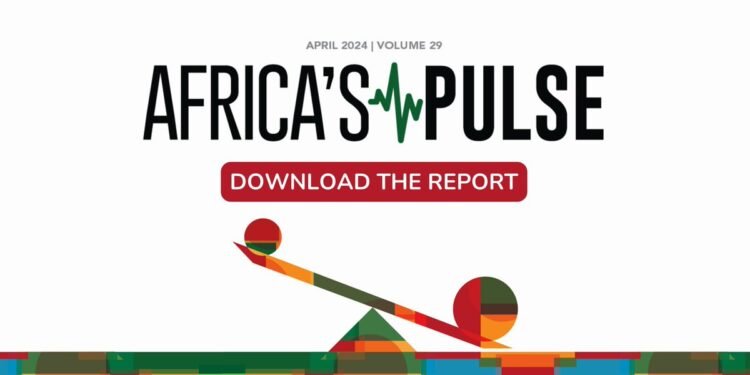In 2023, Sub-Saharan Africa experienced a significant economic downturn, with growth bottoming out at 2.6 percent. However, there are signs of recovery on the horizon, with growth expected to rebound to 3.4 percent in 2024 and further to 3.8 percent in 2025. This growth trajectory is primarily attributed to increased private consumption driven by declining inflation rates, which enhance the purchasing power of households across the region. While the recovery is promising, it remains fragile due to various factors impacting investment growth and fiscal consolidation measures in certain countries.
Factors Driving Economic Recovery
Private Consumption Growth
The anticipated growth in Sub-Saharan Africa’s economy is largely fueled by the resilience of private consumption. Declining inflation rates are expected to bolster the purchasing power of households, stimulating spending and economic activity. This trend is essential for sustaining economic recovery and fostering long-term growth prospects.
Investment Growth Challenges
Despite the overall positive outlook, investment growth is expected to remain subdued. High interest rates and fiscal consolidation measures in several countries are likely to constrain investment opportunities. However, expectations of monetary policy rate cuts in major global economies could potentially stimulate investment growth in the region by 2025.
Global Economic Contribution
While the global economy plays a role in Africa’s growth, its contribution remains modest. Factors such as geopolitical tensions and tight financial conditions in advanced economies pose challenges to global economic activity. However, opportunities for growth persist, especially with the normalization of supply chains and falling commodity prices.
Addressing Inflation Dynamics
Declining Inflation Rates
Inflation rates in Sub-Saharan Africa are gradually receding, albeit remaining relatively high compared to pre-pandemic levels. The normalization of global supply chains, declining commodity prices, and monetary tightening measures contribute to this trend. However, significant inflationary pressures persist in certain countries, necessitating tailored monetary policy responses.
Monetary Policy Adjustments
The diverse inflation dynamics across the region require nuanced monetary policy interventions. Countries experiencing declining inflation rates near their target range may benefit from a pause in monetary tightening. In contrast, countries facing elevated inflation levels require a combination of monetary tightening and fiscal consolidation to mitigate inflationary pressures effectively.
Fiscal Balances and Debt Management
Improving Fiscal Balances
Several Sub-Saharan African countries have embarked on fiscal consolidation measures to improve fiscal balances. Countries like Ghana, Kenya, and Nigeria have made notable progress in this regard. However, significant fiscal deficits persist across the region, underscoring the need for sustained fiscal prudence and transformative policy actions.
Managing Debt Service Obligations
While public debt is expected to decline slightly in 2024, the region continues to face challenges related to debt sustainability and liquidity. High debt service obligations pose significant constraints on fiscal flexibility and development spending. Effective debt management strategies and international support are essential to alleviate the region’s funding constraints.
Addressing Growth Headwinds and Structural Inequalities
Escalating Conflict and Violence
Escalating conflict and violence pose significant challenges to economic stability and growth in Sub-Saharan Africa. Tensions in West Africa, military coups, and internal conflicts threaten investor sentiment and exacerbate humanitarian crises. Addressing these challenges requires concerted efforts to promote peace, stability, and sustainable development.
Structural Inequality and Growth Constraints
Structural inequalities persist in Sub-Saharan Africa, undermining long-term growth prospects and poverty reduction efforts. Addressing these inequalities requires multifaceted policy interventions aimed at creating a more inclusive and equitable economic environment. Investments in human capital, market reforms, and regional integration initiatives are crucial for fostering sustainable and inclusive growth.
Conclusion
In conclusion, and related to Africa’s Pulse Report 2024, the economic outlook for Sub-Saharan Africa in 2024 shows signs of recovery, albeit amid challenges and uncertainties. Addressing inflation dynamics, fiscal imbalances, and structural inequalities is paramount for fostering sustainable economic growth and poverty reduction in the region. Multisectoral policy responses, supported by domestic reforms and international cooperation, are essential for overcoming these challenges and unlocking Africa’s full economic potential.









